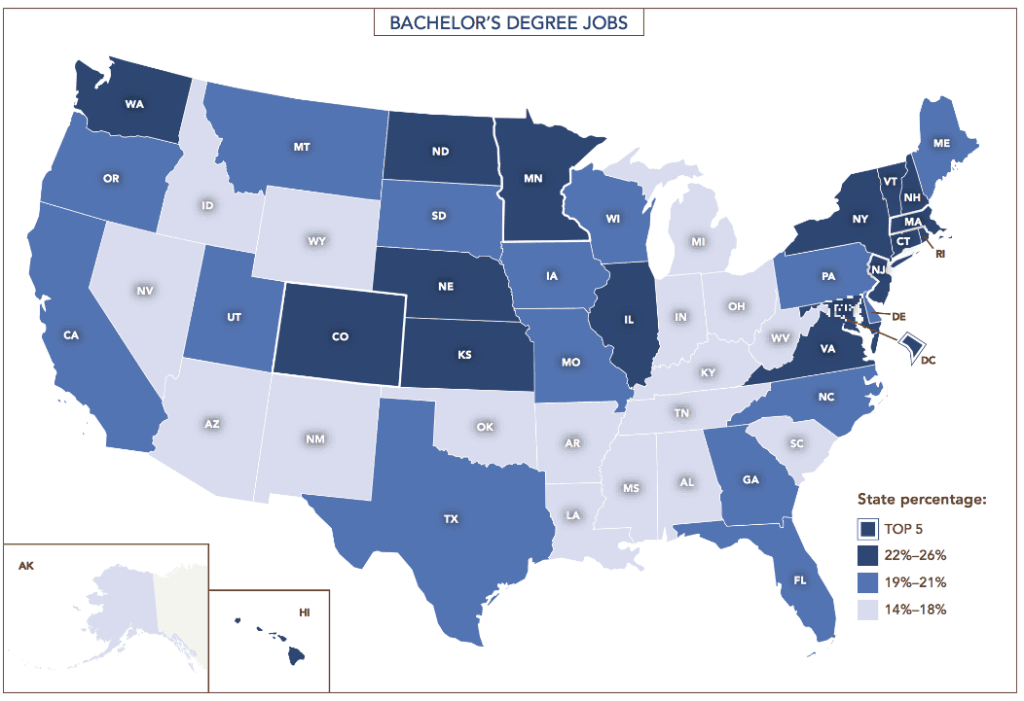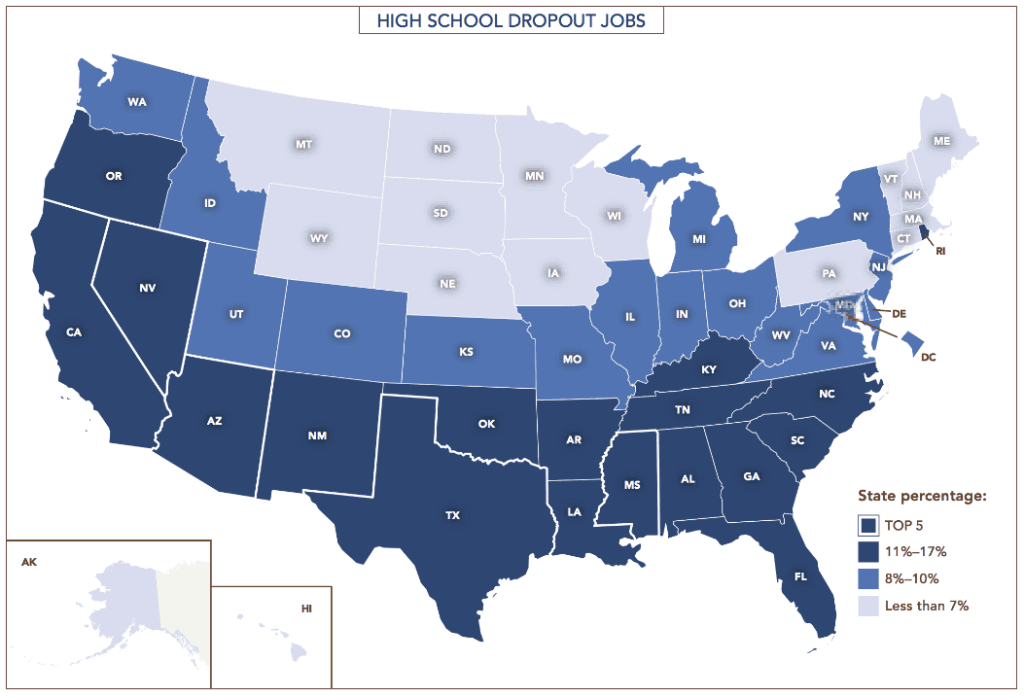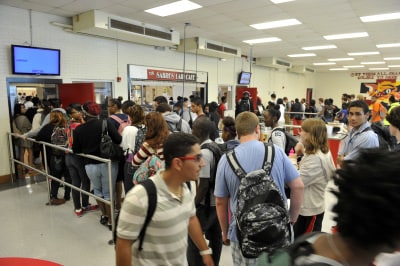

When we talk about the future of work, we often look at the number of jobs likely to be created in aggregate, with special attention paid to entry level jobs for recent college graduates. The pipeline of labor and the strength of our economy are dependent on people believing that education has a great return on investment and that the investment increases the economic mobility of each generation—parents encourage their kids to go to college because they want them to do as well or better than they have.
And there’s plenty of evidence to support that belief: the economic trajectory of people with a postsecondary degree is far more secure than those who were not able to pursue education after high school:
- Median earnings for bachelor’s degree recipients working full time is $21,000- $56,000 more than the median earnings for high school graduates
- More tha 10 percent of high school graduates age 25 and older live in a household that relies on SNAP (Supplemental Nutritional Assistance Program) benefits, compared to two percent for those with at least a bachelor’s degree
- According to the Pew Charitable Trusts, only 10 percent of children born in the lowest quintile of the income distribution who get a four-year college degree remain in that quintile as adults, compared to 47 percent of those without a four-year degree
But in much of the South, too few jobs require a postsecondary education and allow for economic security. Arkansas, for example, added 40,000 jobs between 2010 and 2013 and the state is forecast to add 546,000 jobs by the end of 2023. Nearly 70 percent of current jobs are low-skill and only 30 percent of jobs require a postsecondary credential for entry-level employment. Low-skill jobs are also conflated with lower wages, producing a workforce that is unable to move up the economic ladder and generate significant economic growth through their consumption, investment, and tax dollars. In Arkansas, 87 percent of jobs that pay less than a family-sustaining wage are those that don’t require education beyond high school. Moreover, in 2013, 65 percent of the jobs in the state did not meet that yearly threshold of a family sustaining wage.
Arkansas is not alone in this issue. The low-wage, low skill economy is an issue throughout North Carolina and the South. MDC, the Durham-based nonprofit where I work, called attention to the lack of well-paying jobs across the region in the State of the South report, and we are currently preparing a study of economic mobility in North Carolina that raises similar concerns about the low-wage jobs in our home state. And as you can see from the maps below, the states with the most jobs for high school dropouts are in the South while the opportunities for growth for those with bachelor’s degrees are in the North and the Midwest.




To learn more, visit the EXPECT MORE website to learn more about how Arkansans are building an Infrastructure of Opportunity for their future and watch this video explaining the initiative.
Update: MDC and The Winthrop Rockefeller Foundation recently hosted an event at the Clinton School of Public Service about how Arkansans can make sure tomorrow’s jobs are better. Video of the event can be viewed here.
This article originally appeared at the State of the South blog. It is reprinted here with the author’s permission.




